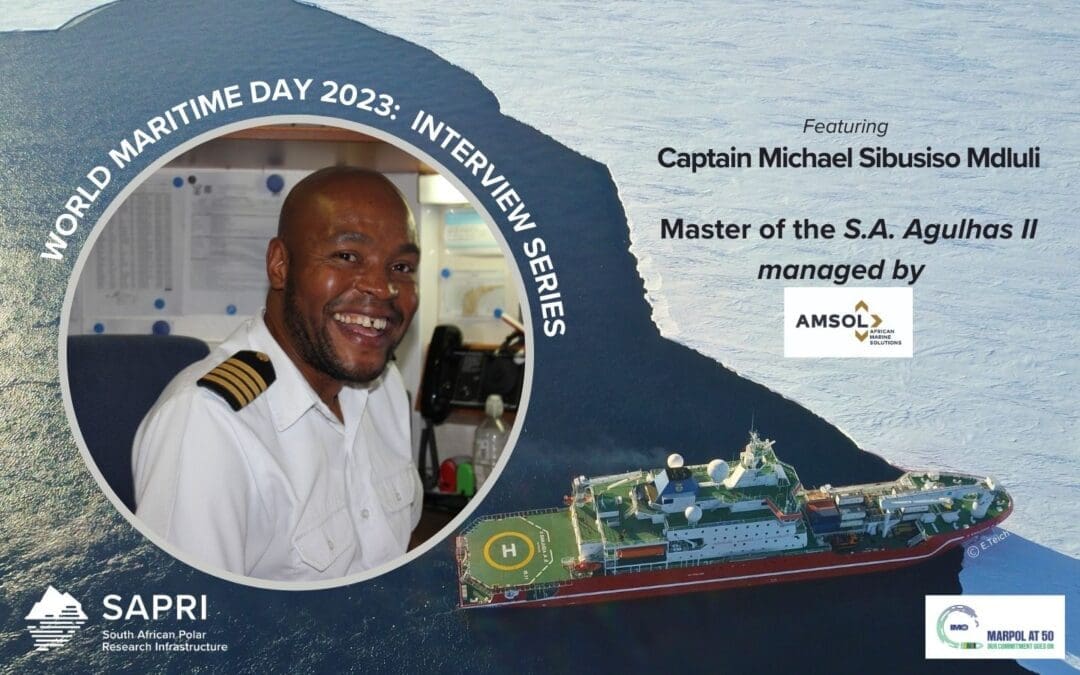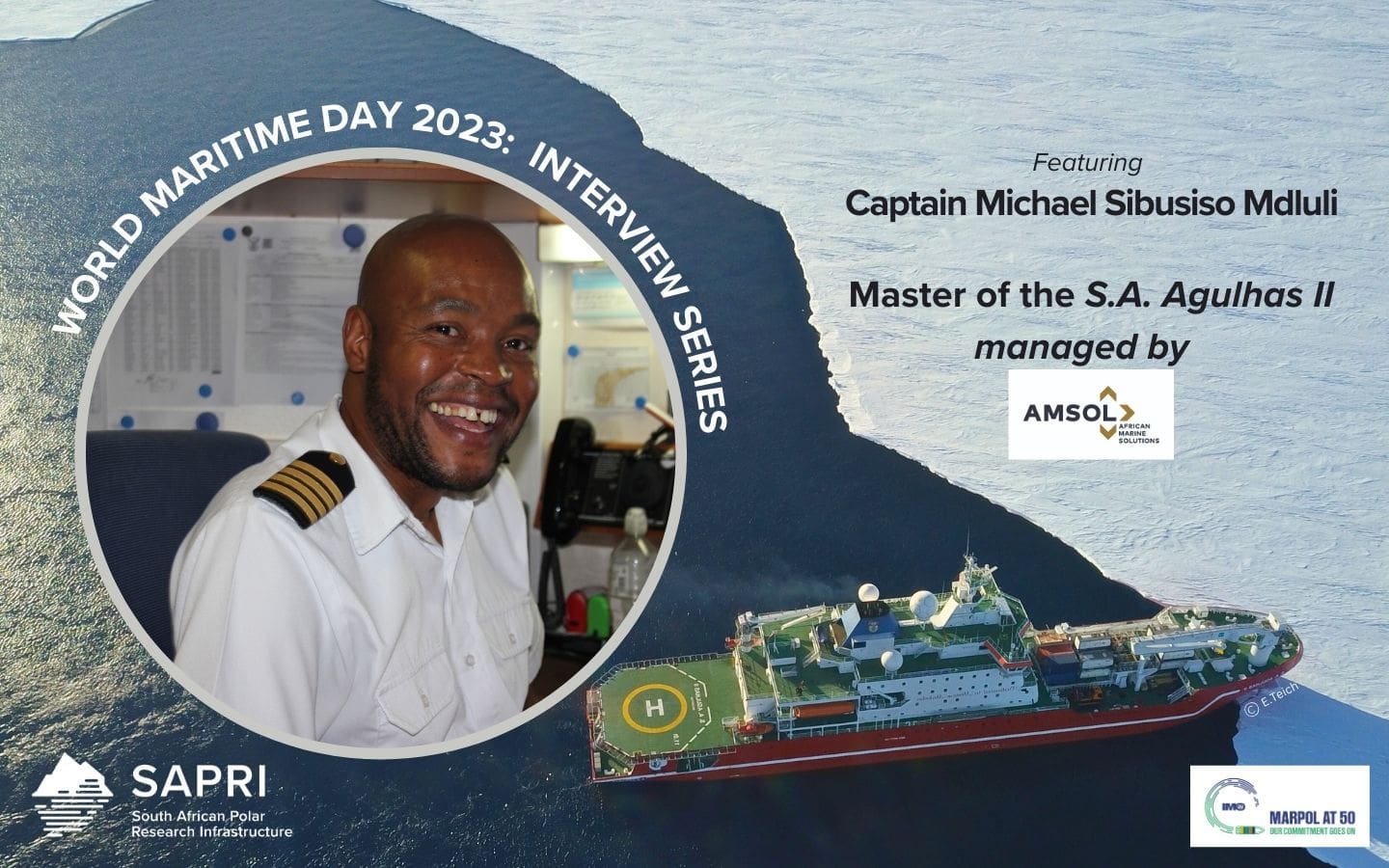Leading up to World Maritime Day 2023
Every year on the last Thursday of September, nations around the world come together to celebrate World Maritime Day. This international observance aims to highlight the crucial role that shipping and seafaring play in our global economy and emphasise the importance of sustainable maritime practices. World Maritime Day provides an opportunity to raise awareness about the challenges faced by the maritime industry and to promote international cooperation in addressing them.
According to the International Maritime Organisation (IMO), This year’s World Maritime theme is “MARPOL at 50 – Our commitment goes on”. The theme spotlights the International Convention for the Prevention of Pollution from Ships (MARPOL), which covers the prevention of pollution of the marine environment by ships from operational or accidental causes.
Acknowledging the Role of South African Seafarers in the Maritime Industry
The maritime industry is the backbone of global trade. This industry connects countries, facilitates economic growth, enables scientific and research expeditions and plays a vital role in our everyday lives. However, the success of this enormous industry would not be possible without the men and women who sacrifice their time on land to serve our maritime needs. In recognising this, the South African National Antarctic Programme (SANAP) and the South African Polar Research Infrastructure (SAPRI), would like to honour some of our local seafarers working on board the South African research and supply vessel, the S.A. Agulhas II during various marine and Antarctic research related expeditions through the Southern, Indian and Atlantic Oceans. We would like to honour these seafarers in The Maritime Interview Series, leading up to World Maritime Day, on Thursday, 28 September 2023.
The Maritime Interview Series Part 1 features Captain Michael Sibusiso Mdluli, Master of the S.A. Agulhas II.
What is the Captain’s role on the ship?
“As the captain (also known as the Master), I hold the highest-ranking position on the vessel and I’m responsible for various critical tasks. I oversee the navigation, operations and safety of the S.A. Agulhas II, including managing and leading the crew. I have to ensure compliance with regulations and laws, oversee the vessel maintenance and administration, and handle commercial and legal responsibilities. My primary focus is thus on maintaining the safety, efficiency, and overall well-being of the vessel, crew, and cargo throughout its operations”.
Captain Mdluli’s Background and Journey into a Seafarer Career
Captain Mdluli grew up in a small village of Kwathunyana, which is 50 km south of Durban, and currently resides in Kloof, Durban. From humble beginnings as a Third Officer to obtaining the internationally recognised Master’s Certificate of Competency (Unlimited) in 2012, Captain Mdluli has been a seafarer for over 20 years. He has worked as a Master on several cargo vessels before joining the S.A. Agulhas II in 2016, and maintains that his experience on a research vessel such as the S.A. Agulhas II is both challenging and enjoyable. Some of the new and exciting experiences he mentioned about commanding the S.A. Agulhas II were learning how to navigate sea ice, a critical role during SANAE IV expeditions to Antarctica, as well as working with and learning from the scientists and researchers aboard the S.A. Agulhas II during research expeditions.
Captain Mdluli holds a Master’s Certificate of Competency (Unlimited), which makes him qualified to command a vessel of any size in the world’s oceans.
What do you like the most about your job?
“I enjoy travelling, seeing new places, meeting and interacting with different people, and learning from others. I also enjoy sharing my knowledge with others and empowering and inspiring the youth of South Africa”. To this, Captain Mdluli spoke about his involvement in school outreach programmes, where he visits local high schools in KwaZulu-Natal to share his knowledge and experiences as a seafarer.
What are some of the challenges that you experience in your line of work?
“Being away from loved ones and sometimes the long working hours that come with being a captain and overseeing everything and everyone”. He mentioned that he often has to be the last man standing. Captain Mdluli expressed that as much as he enjoys working with people and sees the crew as part of his family and always strives to get to know his crew on a personal level, this also comes with the challenge of dealing with individual personal matters that he is not always equipped to. However, he mentioned that the vessel managing agent, African Marine Solutions (AMSOL), offers counselling for their staff, which helps provide support during long voyages at sea.
Away from home: See the S.A. Agulhas II voyage schedule here.
Advice from Captain Mdluli:
“The best advice I would give to anyone interested in pursuing a career in maritime or wants to become a ship captain one day, is to choose STEM subjects at school (i.e., Science, Technology, Engineering, and Mathematics). Furthermore, to work at sea, you must have a positive mindset and show resilience, and most importantly, you must have a passion for it. Therefore, when looking to pursue any career, talk to the people who’ve been there or doing something related, to find out if it’s right for you”.
World Maritime Day reminds us of the vital role that the maritime industry plays in our interconnected world. The maritime industry is also particularly crucial in enabling the science and research in the Antarctic region and Southern Ocean through SANAP. SANAP recognises the global and national importance of safeguarding the environment of the Antarctic and Southern Ocean and protecting the integrity of ecosystems, both marine and terrestrial, in the region.
As we navigate towards a more sustainable future, let us recognise the invaluable efforts of seafarers who continue to navigate the world’s oceans, connecting nations, and powering global trade, science and research.
Photo Credit: Rabia Mathakutha (South African Polar Research Infrastructure) and Eduan Teich via the Antarctic Legacy of South Africa (ALSA) Archive.
Written by: Rabia Mathakutha, South African Polar Research Infrastructure, 20 September 2023
Edited by: Anche Louw, South African Polar Research Infrastructure and Ria Olivier, Antarctic Legacy of South Africa







